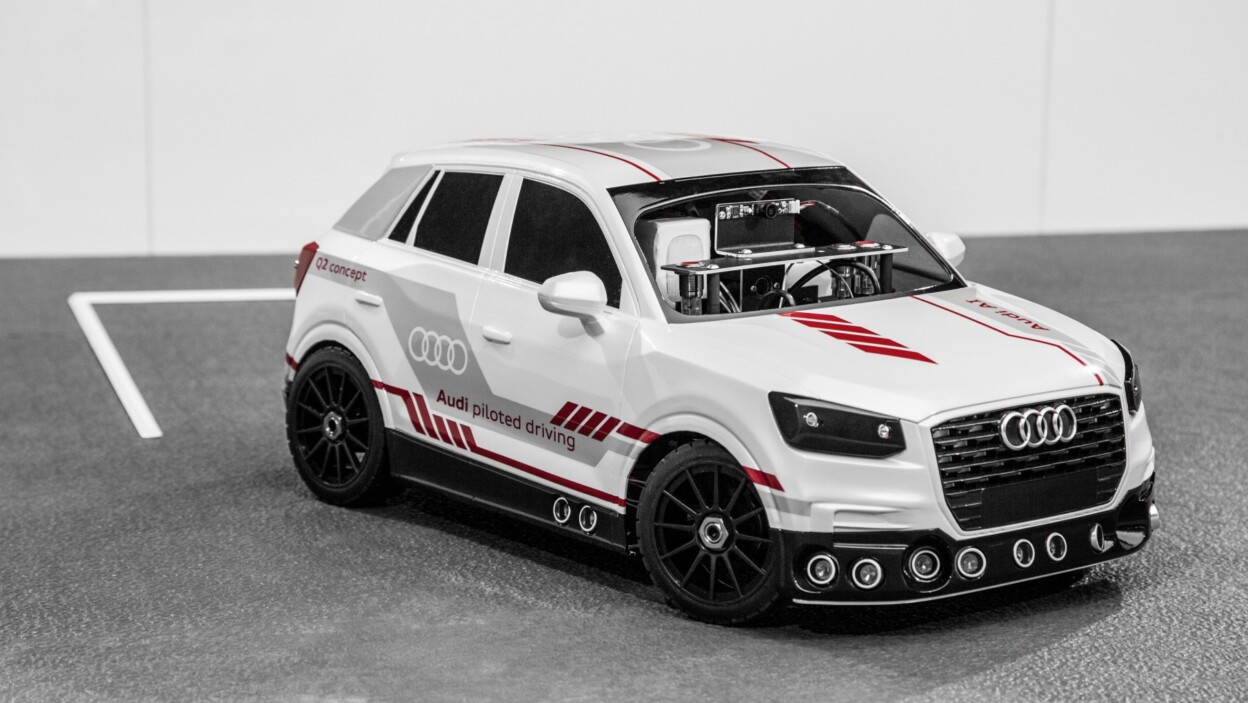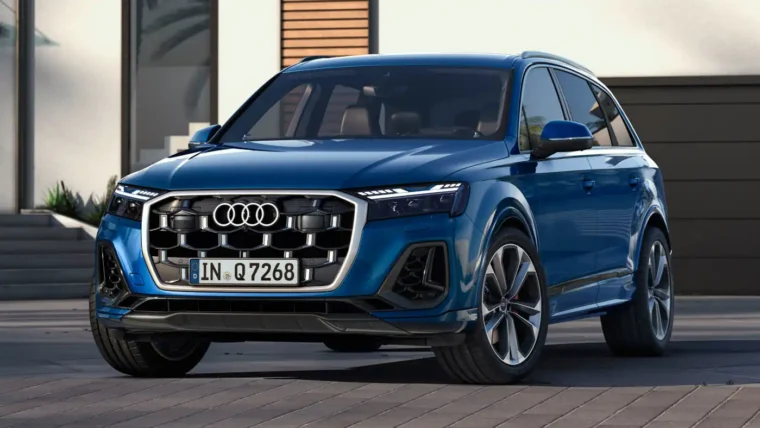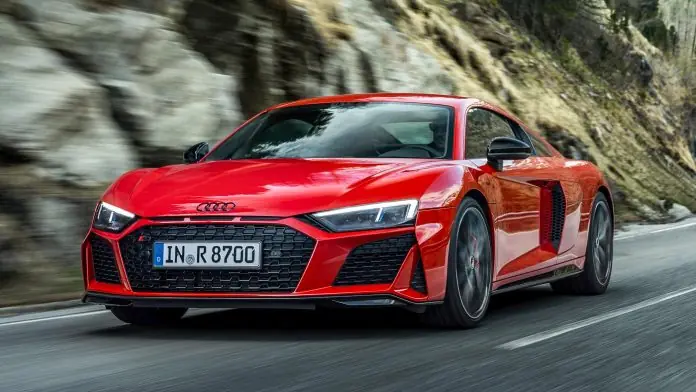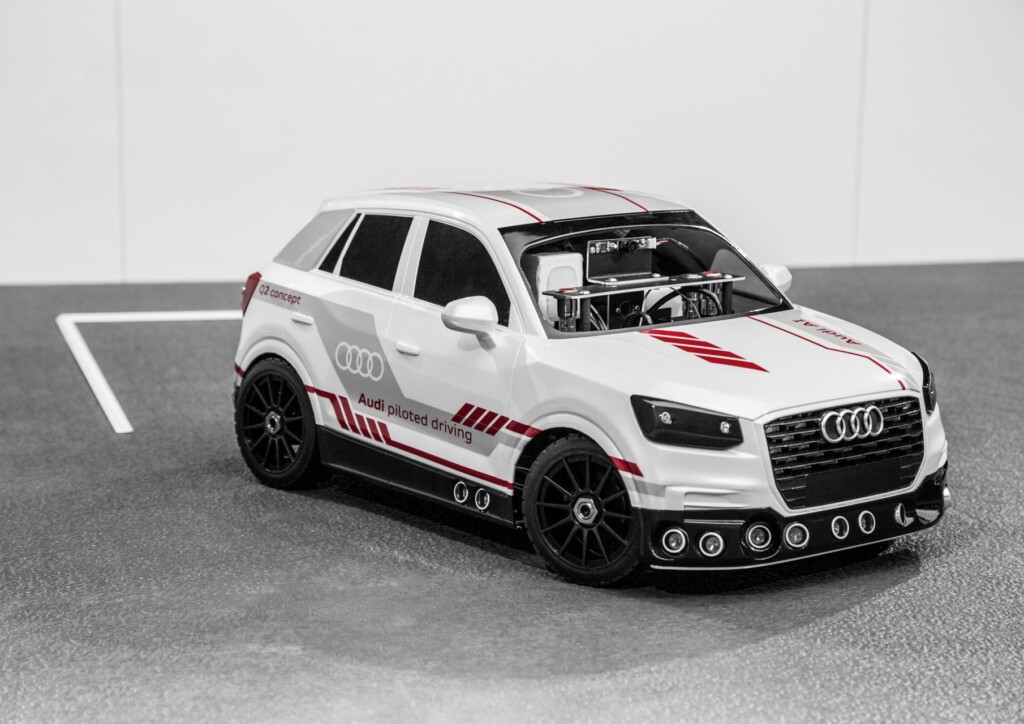
Self-learning systems are a key technology for piloted driving cars. That’s why Audi has already built up a wealth of know-how in machine learning. The company recently showcased an Audi Q2 1:8 scale model car called “deep learning concept” that is capable of searching for its own parking space and then parks itself there.
The Audi Q2 deep learning concept’s sensor technology consists of 2 mono cameras, facing forward and toward the rear, along with 10 ultrasonic sensors positioned at points all around the model. A central on-board computer converts their data into control signals for steering and the electric motor. On the driving surface, the model car first determines its position relative to the parking space. As soon as it perceives the position, it calculates how it can safely drive to its targeted destination. The model car maneuvers, steers and drives forward or in reverse, depending on the situation.
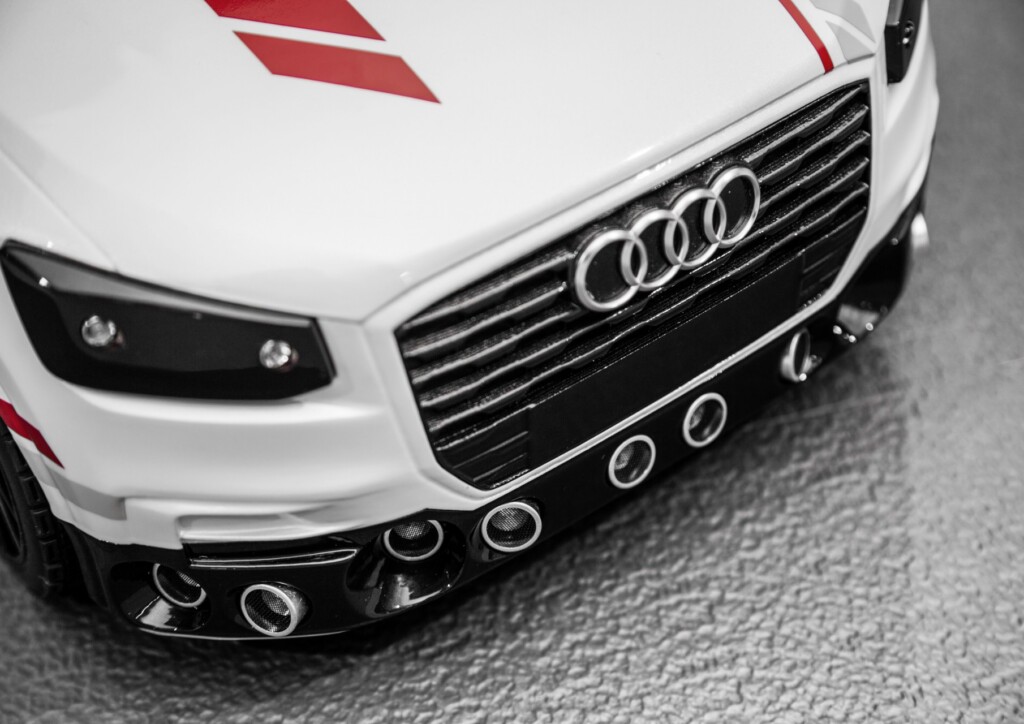
The model car’s parking ability is made possible by deep reinforcement learning. In other words, the system essentially learns through trial and error. To begin, the car selects its direction of travel at random. An algorithm autonomously identifies the successful actions, thus continually refining the parking strategy. So in the end the system is able to solve even difficult problems autonomously.
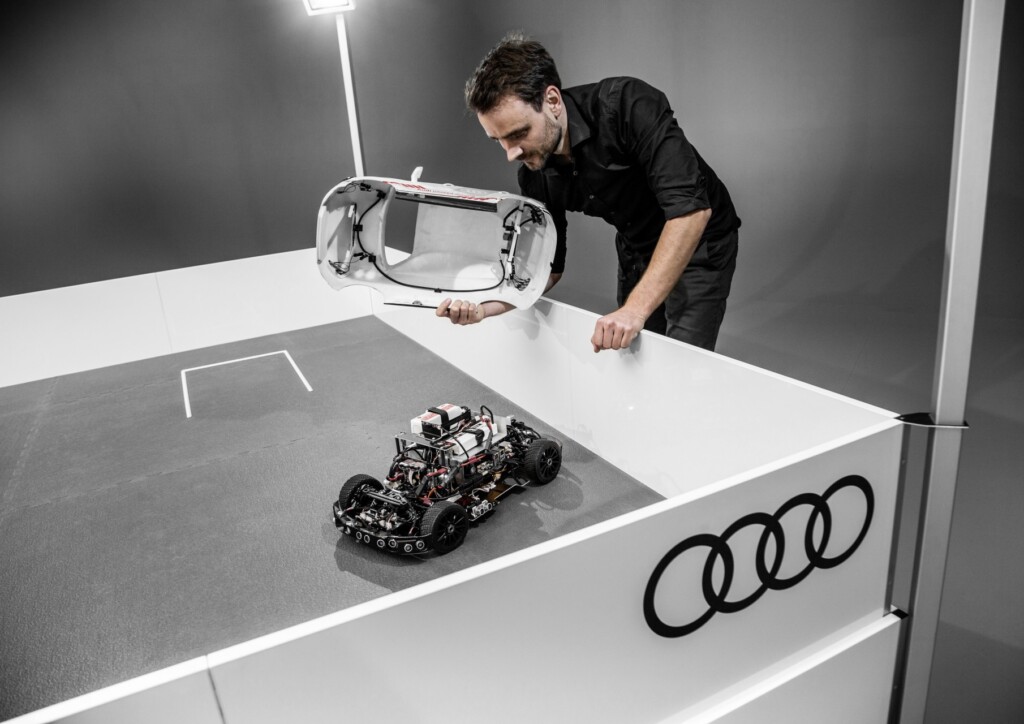
The Audi Q2 deep learning concept is showcased at the Conference and Workshop on Neural Information Processing Systems (NIPS), in Barcelona, Spain. It is a project of Audi Electronics Venture (AEV), an AUDI AG subsidiary in Gaimersheim, Germany that develops advanced technology. In the next step, the developers are transferring the parking-space search process as part of the “driver assistance controller” in next year’s next-gen A8 luxury sedan.
Other posts by AF Newsdesk

